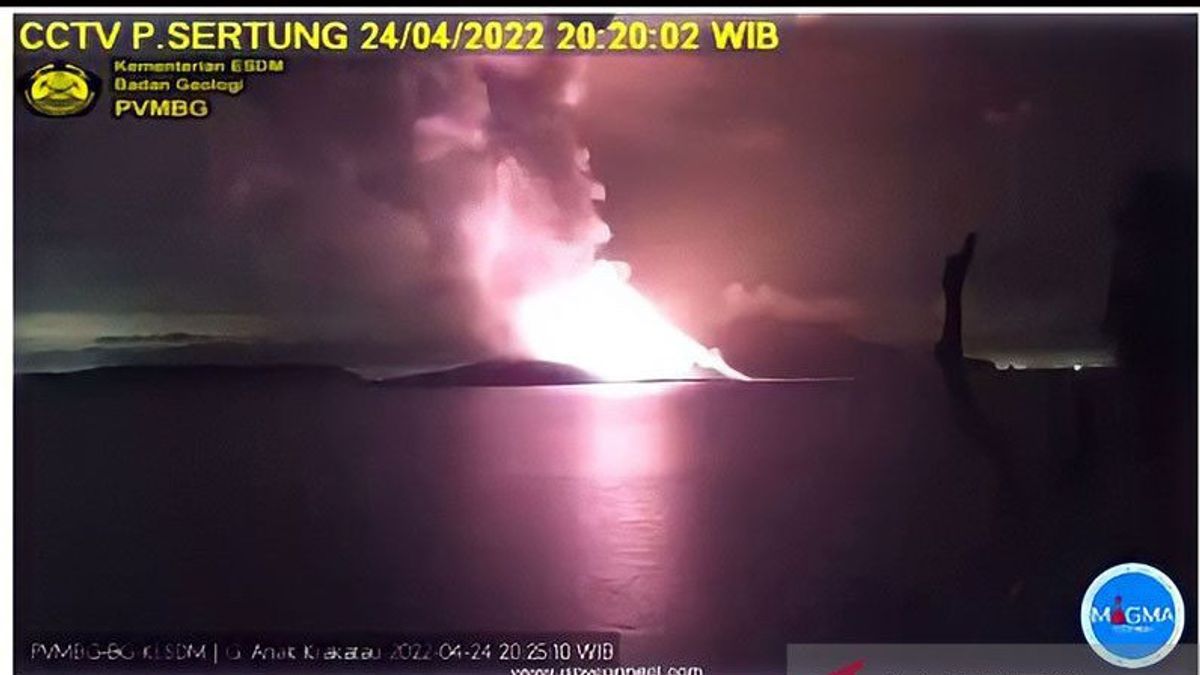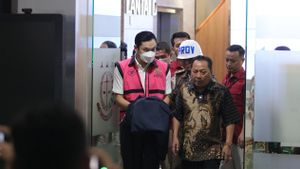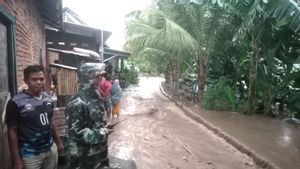JAKARTA - The Center for Volcanology and Geological Hazard Mitigation (PVMBG) of the Geological Agency of the Ministry of Energy and Mineral Resources stated that the crossing in the Sunda Strait is relatively safe despite the increased volcanic activity of Mount Anak Krakatau.
Head of PVMBG Hendra Gunawan said the potential danger at this time was the ejection of incandescent material within a radius of two kilometers from the center of the eruption, so that people living or doing activities outside a radius of five kilometers from the center of the crater were relatively safe.
"People who are outside five kilometers away remain calm, including people who go home using ship transportation which is tens of kilometers away (from Mount Anak Krakatau). So it is relatively safe, but to be careful, they are asked to keep abreast of updated information issued by the Agency Geology," said Hendra as quoted by Antara, Monday, April 25.
The government has raised the status of Mount Anak Krakatau from alert (Level II) to alert (Level III) starting April 24, 2022, at 18.00 WIB. The status increased after seeing the results of visual and instrumental monitoring which showed a significant increase in volcanic activity.
Since April 15, 2022, Mount Anak Krakatau has continued to show increased volcanic activity in the form of smoke gusts and column eruption heights with variations as high as 1,000 to 2,000 meters from sea level, and in the last three days it has reached 3,000 meters.
Based on satellite monitoring Sentinel-5 (Tropomi) showed sulfur dioxide emissions began to be observed on April 14 with sulfur dioxide of 28.4 tons per day, increased to 68.4 tons per day on April 15 and increased dramatically on April 23 by 9,219 tons per day.
Hendra explained that the monitoring of the magma was correlated with the current increase in eruptive activity of Mount Anak Krakatau.
According to him, a significant increase in sulfur dioxide indicates a new supply of magma and magmatic material that comes out to the surface in the form of ejection of incandescent material followed by lava flows.
The amount of sulfur dioxide in the above period reached 9.2 kilotons. When compared to the 2018 eruption period, namely June-August 2018 as many as 12.4 kilotons and September-October 2018 as many as 19.4 kilotons.
The English, Chinese, Japanese, Arabic, and French versions are automatically generated by the AI. So there may still be inaccuracies in translating, please always see Indonesian as our main language. (system supported by DigitalSiber.id)













